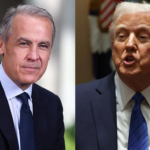Introduction
As the UK braces for another harsh winter, political pressure mounts for the government to reassess its energy support strategy. Labour has called for a comprehensive winter fuel rethink to better support vulnerable households, yet No 10 remains firm in its resistance. This blog explores the top 5 reasons why the Conservative-led government is pushing back against Labour’s proposals for enhanced winter fuel assistance.



1. Fiscal Constraints and Budget Priorities
One of the primary reasons cited by Downing Street is the current fiscal environment. With the UK still managing post-pandemic debt and inflationary pressures, the Treasury is reluctant to approve additional spending. No 10 argues that extending or increasing winter fuel payments would require cuts elsewhere or borrowing, which could undermine economic recovery and investor confidence.
2. Confidence in Existing Support Schemes
The government maintains that the existing support mechanisms, including the Winter Fuel Payment and Cold Weather Payment, are sufficient. Rishi Sunak’s administration points to recent cost-of-living payments and energy bill rebates as proof that targeted help is already reaching those who need it most. Officials argue that reconfiguring these schemes mid-winter could cause confusion and administrative delays.
3. Ideological Divide on Welfare Spending
At the heart of this debate is a broader ideological difference between the Conservative government and Labour opposition. While Labour views increased energy aid as a moral imperative, the Tories are wary of creating dependency on state support. No 10 believes that long-term energy solutions, such as investment in renewables and energy efficiency programs, are more sustainable than recurring cash handouts.
4. Political Strategy and Public Perception
With a general election on the horizon, political optics matter. Backing Labour’s call for more generous winter fuel payments could be seen as an admission of policy failure. No 10 may also be concerned about setting a precedent that allows the opposition to dictate the policy agenda. By standing firm, the Conservatives aim to project strength and fiscal responsibility, key themes in their campaign narrative.
5. Focus on Long-Term Energy Security
Rather than short-term fixes, the government claims it is prioritising energy security and independence. This includes expanding nuclear capacity, supporting offshore wind, and investing in home insulation. According to ministers, Labour’s proposals do not address the root causes of the energy crisis and could divert attention and funding from longer-term infrastructure goals.
Conclusion
The clash between No 10 and Labour over winter fuel payments underscores deeper political and economic divides. While millions of UK households struggle to stay warm, the debate rages on about how best to provide support—through immediate financial relief or structural energy reform. As winter deepens and public scrutiny intensifies, the government’s resistance will continue to be tested.
For more on this issue, read our article: UK Government Faces Backlash Over Heating Costs.








